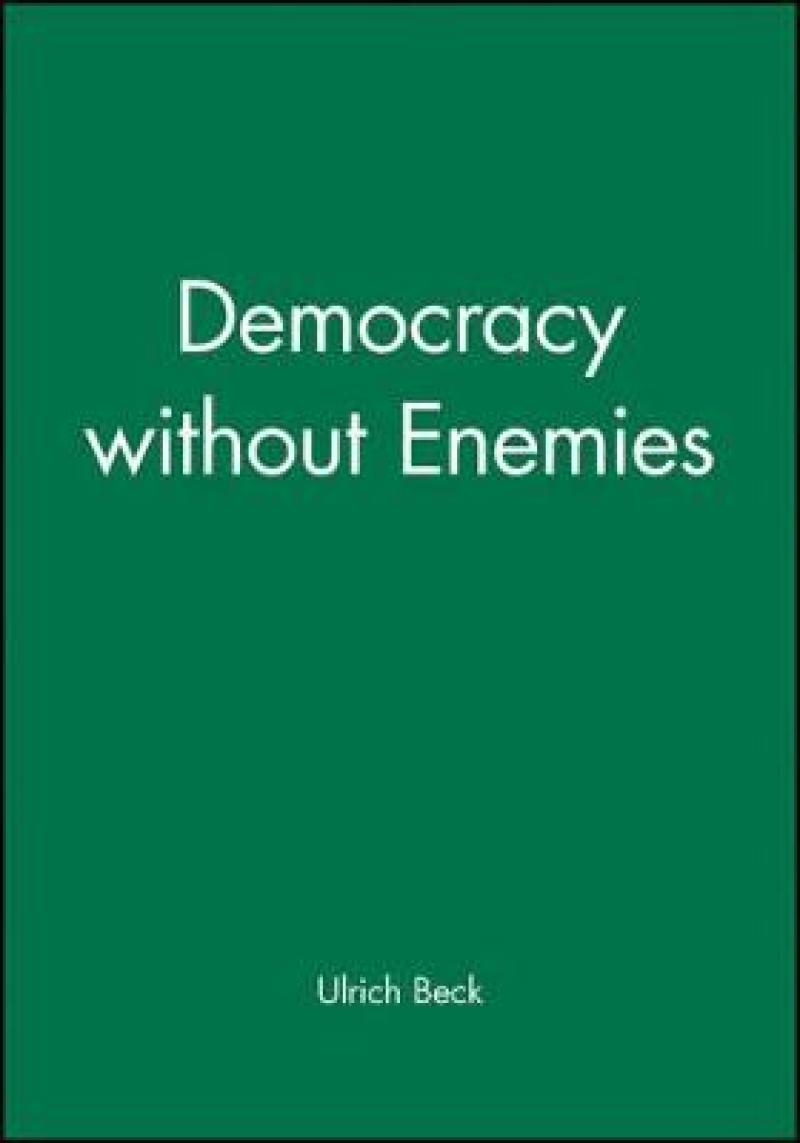Up to now, modernization has always been conceived of, in contrast to the worlds of tradition and religion, as a liberation from the constraints of nature. What happens, however, if industrial society becomes a 'tradition' to itself? What if its own necessities, functional principles and fundamental concepts are undermined, broken up and demystified with the same ruthlessness as were the supposedly eternal truths of earlier epochs? These questions are the focus of Ulrich Beck's Democracy without Enemies. The conflict of the future, he argues, will no longer be between East and West, between communism and capitalism, but between the countries, regions and groups involved in primary modernization and those that are attempting to relativize and reform the project of modernity self-critically, based on their experience of it. The conflict of the future will be between the two modernities which will battle over the compatibility of survival and human rights for all citizens of the earth.
Les mer
Up to now, modernization has always been conceived of, in contrast to the worlds of tradition and religion, as a liberation from the constraints of nature.
1. Freedom's Children. 2. What Comes After Postmodernity: The Conflict of Two Modernities. 3. The Withering Away of Solidarity: Places without Community and Communities without Places. 4. Perspectives on a Cultural Evolution of Work. 5. Capitalism without Work, or the Coming of Civil Society. 6. The Democratization of the Family, or the Unknown Art of Free Association. 7. Misunderstanding Reflexivity: the Controversy on Reflexive Modernization. 8. The Renaissance of Politics in Reflexive Modernity: Politicians Must Make a Response. 9. The Open City: Architecture in Reflexive Modernity. 10. How Neighbours Become Jews: the Political Construction of the Stranger in the Age of Reflexive Modernity. 11. Nation-States without Enemies: the Military and Democracy after the End of the Cold War. 12. Brief Introduction to Environmental Machiavellianism: Green Democracy from Below. 13. Freedom or Survival: the Utopia of Self-Limitation. Notes. References. Index.
Les mer
Up to now, modernization has always been conceived of, in contrast to the worlds of tradition and religion, as a liberation from the constraints of nature. What happens, however, if industrial society becomes a 'tradition' to itself? What if its own necessities, functional principles and fundamental concepts are undermined, broken up and demystified with the same ruthlessness as were the supposedly eternal truths of earlier epochs? These questions are the focus of Ulrich Beck's Democracy without Enemies. The conflict of the future, he argues, will no longer be between East and West, between communism and capitalism, but between the countries, regions and groups involved in primary modernization and those that are attempting to relativize and reform the project of modernity self-critically, based on their experience of it. The conflict of the future will be between the two modernities which will battle over the compatibility of survival and human rights for all citizens of the earth.
Les mer
"Another chef d'oeuvre from Beck - simultaneously a bold overview and a most detailed map of the world we have made and are made by. And the fullest to-date presentation of the idea of "second modernity": that of the pressures to rationalize the effects of rationalization which will dominate our individual and collective concerns and efforts for the years to come. A supreme exercise in restoring to view the lost link between biography and history, individual life and its global setting: an essential reading for everyone trying to see form and logic in the increasingly confused and shapeless experience." Zygmunt Bauman, University of Leeds "The state without enemies is a step already on the way to the global risk society of what Beck calls our "second modernity". This book has raised - among scholars and politicians - considerable controversy in Germany, and will no doubt do so in the English-speaking world." Scott Lash, Lancaster University
Les mer
1. Freedom's Children.
2. What Comes After Postmodernity: The Conflict of Two
Modernities.
3. The Withering Away of Solidarity: Places without Community
and Communities without Places.
4. Perspectives on a Cultural Evolution of Work.
5. Capitalism without Work, or the Coming of Civil Society.
6. The Democratization of the Family, or the Unknown Art of Free
Association.
7. Misunderstanding Reflexivity: the Controversy on Reflexive
Modernization.
8. The Renaissance of Politics in Reflexive Modernity:
Politicians Must Make a Response.
9. The Open City: Architecture in Reflexive Modernity.
10. How Neighbours Become Jews: the Political Construction of
the Stranger in the Age of Reflexive Modernity.
11. Nation-States without Enemies: the Military and Democracy
after the End of the Cold War.
12. Brief Introduction to Environmental Machiavellianism: Green
Democracy from Below.
13. Freedom or Survival: the Utopia of Self-Limitation.
Notes.
References.
Index.
Les mer
Produktdetaljer
ISBN
9780745618227
Publisert
1998-06-14
Utgiver
Vendor
Polity Press
Vekt
425 gr
Høyde
237 mm
Bredde
160 mm
Dybde
20 mm
Aldersnivå
UU, P, UP, 05, 06
Språk
Product language
Engelsk
Format
Product format
Innbundet
Antall sider
200
Forfatter
